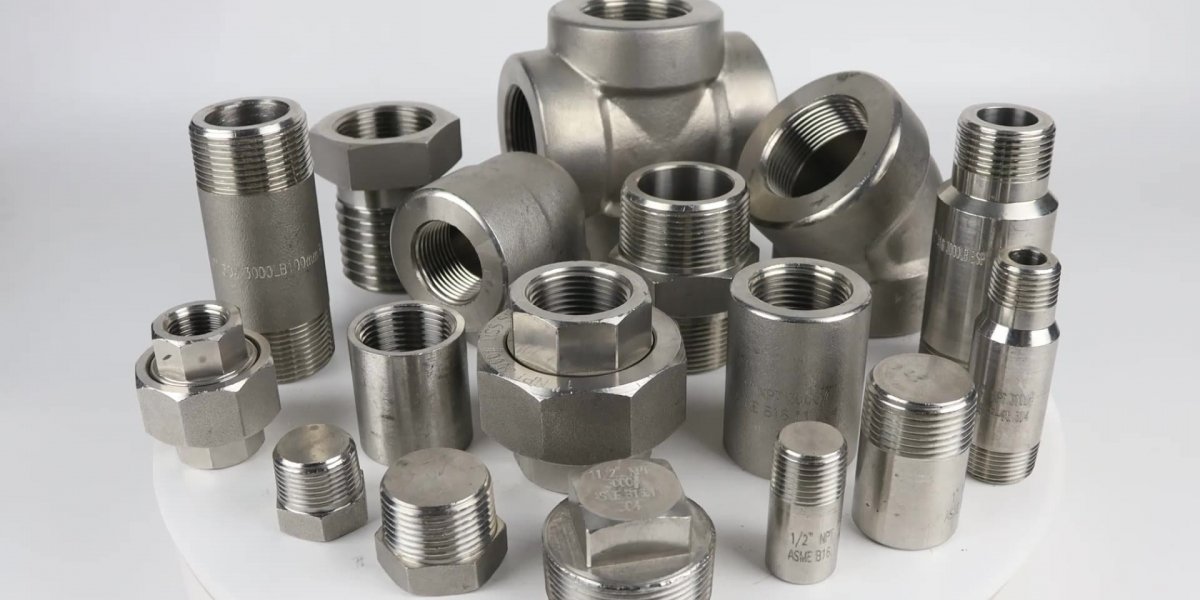In industrial applications where corrosion, temperature, and stress are constant challenges, the choice of fasteners can determine the reliability and safety of an entire system. Hastelloy bolts are among the most durable and corrosion-resistant fastening solutions available today.
As a trusted Hastelloy bolts supplier, we understand that industries such as chemical processing, oil & gas, and marine engineering demand materials that can perform under extreme conditions. This blog explores what makes Hastelloy bolts special, their properties, manufacturing standards, and why choosing the right supplier is critical for ensuring long-term performance and safety.
Understanding Hastelloy Bolts
Hastelloy bolts are made from the Hastelloy family of nickel-molybdenum-chromium alloys. Designed to perform in aggressive chemical environments, these bolts maintain excellent mechanical properties even when exposed to strong oxidizing and reducing agents.
The unique composition of Hastelloy makes it resistant to oxidation, pitting, and stress corrosion cracking. It’s widely used in equipment that deals with acids, chlorides, and high-temperature gases — environments where standard stainless steels fail.
Common types of Hastelloy bolts include:
Hex bolts
Stud bolts
Socket head bolts
Anchor bolts
Machine bolts
Heavy hex bolts
Each type serves a distinct purpose depending on the design, pressure, and environmental needs of the application.
Key Properties of Hastelloy Bolts
Superior Corrosion Resistance
Hastelloy bolts resist corrosion in both oxidizing and reducing conditions. They are ideal for equipment that comes in contact with sulfuric acid, hydrochloric acid, and chlorine-based compounds.High Strength and Durability
These bolts retain their mechanical strength under high stress, making them suitable for heavy industrial and high-temperature applications.Resistance to Pitting and Crevice Corrosion
The molybdenum content enhances resistance to localized corrosion in chloride environments, which is a major issue in marine and chemical industries.Thermal Stability
Hastelloy bolts can withstand high temperatures without losing hardness or toughness, making them suitable for heat exchangers, furnaces, and reactors.Excellent Weldability
They can be easily fabricated and welded, providing flexibility for custom designs and assemblies.
Common Grades of Hastelloy Bolts
Different grades of Hastelloy offer specific advantages depending on the environment. The most popular ones include:
Hastelloy C22 Bolts
Excellent resistance to oxidizing chemicals.
Performs well in both acidic and chloride environments.
Ideal for pollution control and chemical reactors.
Hastelloy C276 Bolts
The most versatile and corrosion-resistant alloy.
Resistant to wet chlorine gas and oxidizing salts.
Commonly used in chemical processing and paper pulp industries.
Hastelloy B2 Bolts
Designed to resist hydrochloric acid and hydrogen chloride gas.
Excellent resistance to stress corrosion cracking.
Used in acid production and chemical storage systems.
Hastelloy C4 Bolts
Maintains stability in high-temperature oxidizing conditions.
Provides resistance to intergranular corrosion.
Used in furnace components and heat exchangers.
Applications of Hastelloy Bolts
The combination of strength, corrosion resistance, and temperature tolerance makes Hastelloy bolts a top choice across various industries.
1. Chemical Processing:
Used in reactors, pressure vessels, and piping systems where exposure to aggressive chemicals is common.
2. Marine and Offshore:
Perfect for shipbuilding, offshore drilling rigs, and seawater desalination plants due to resistance to saltwater corrosion.
3. Oil & Gas Industry:
Essential in pipelines, refineries, and gas processing units that handle acidic and high-pressure fluids.
4. Power Generation:
Used in turbines, heat exchangers, and condensers that operate under high stress and temperature.
5. Aerospace Industry:
Applied in jet engines and exhaust systems where both temperature and oxidation resistance are critical.
6. Pharmaceutical Industry:
Ensures contamination-free assembly in sterilization and chemical processing equipment.
Manufacturing Process of Hastelloy Bolts
High-quality Hastelloy bolts go through several precise manufacturing stages to ensure mechanical integrity and corrosion resistance.
Raw Material Selection
The process begins with the selection of certified Hastelloy alloys, verified for their chemical composition and purity.Forging
The material is heated and forged into bolt blanks under controlled conditions to improve grain structure and strength.Machining
CNC machines cut threads and shape the head for perfect dimensional accuracy and surface finish.Heat Treatment
Bolts undergo annealing to remove internal stress and enhance corrosion resistance.Surface Finishing
Finishing processes such as polishing or passivation remove impurities and improve surface resistance to oxidation.Inspection and Testing
Each bolt is tested for tensile strength, hardness, and precision. Non-destructive tests like ultrasonic and eddy current testing ensure structural reliability.Packaging and Supply
Finished bolts are packaged in corrosion-resistant materials to prevent damage during transportation and storage.
Advantages of Choosing Hastelloy Bolts
Extended Service Life: Withstands harsh environments and reduces replacement costs.
Low Maintenance: Resistant to chemical wear and corrosion, minimizing downtime.
Versatility: Suitable for both oxidizing and reducing media.
High Structural Stability: Retains strength under extreme pressure and heat.
Customizable: Available in various grades, coatings, and dimensions to meet application needs.
Why Work With a Certified Hastelloy Bolts Supplier?
Not all suppliers can guarantee the same level of quality and precision. Working with a certified Hastelloy bolts supplier ensures that you receive fasteners that meet global standards and perform reliably in your applications.
1. Quality Assurance
Certified suppliers adhere to ASTM, ASME, and DIN specifications, ensuring you receive tested and certified materials.
2. Customization Capability
They can produce custom bolt designs, lengths, and coatings based on specific industrial needs.
3. Technical Expertise
Reputed suppliers provide guidance on selecting the right grade, size, and treatment for your application.
4. On-Time Delivery
Efficient logistics and stock availability ensure quick and timely delivery worldwide.
5. Documentation and Certification
Each shipment comes with Mill Test Certificates (MTC), traceability documents, and compliance certifications.
Standards and Specifications
Hastelloy bolts are produced according to internationally recognized standards such as:
ASTM B574 / ASME SB574 – For Hastelloy C22 and C276 materials.
DIN 2.4819 / UNS N10276 – Material designation for C276.
ISO and ANSI – Dimensional and mechanical standards for fasteners.
These standards ensure uniform quality, mechanical strength, and chemical consistency across all manufactured bolts.
Maintenance and Handling Tips
While Hastelloy bolts are durable, proper maintenance ensures their longevity:
Store them in dry conditions to prevent moisture buildup.
Avoid mixing with carbon steel or iron components to prevent galvanic corrosion.
Apply the recommended torque during installation to prevent over-tightening.
Inspect regularly for signs of wear or chemical buildup, especially in continuous-use equipment.
How to Select the Right Supplier
When selecting a Hastelloy bolts supplier, consider these factors:
Experience in Alloy Manufacturing – Choose suppliers with proven expertise in nickel-based alloys.
Quality Certifications – ISO 9001 and PED certification indicate a strong quality management system.
Material Testing Facilities – Ensure the supplier performs in-house mechanical and chemical testing.
Global Supply Network – Check if they can handle large orders and export internationally.
After-Sales Support – Reliable suppliers offer technical support and replacements when needed.
Conclusion
Hastelloy bolts are an indispensable part of modern engineering — built to withstand the most corrosive and high-temperature environments. Their exceptional durability and strength make them the first choice for critical applications across industries like chemical, marine, oil & gas, and power generation.








